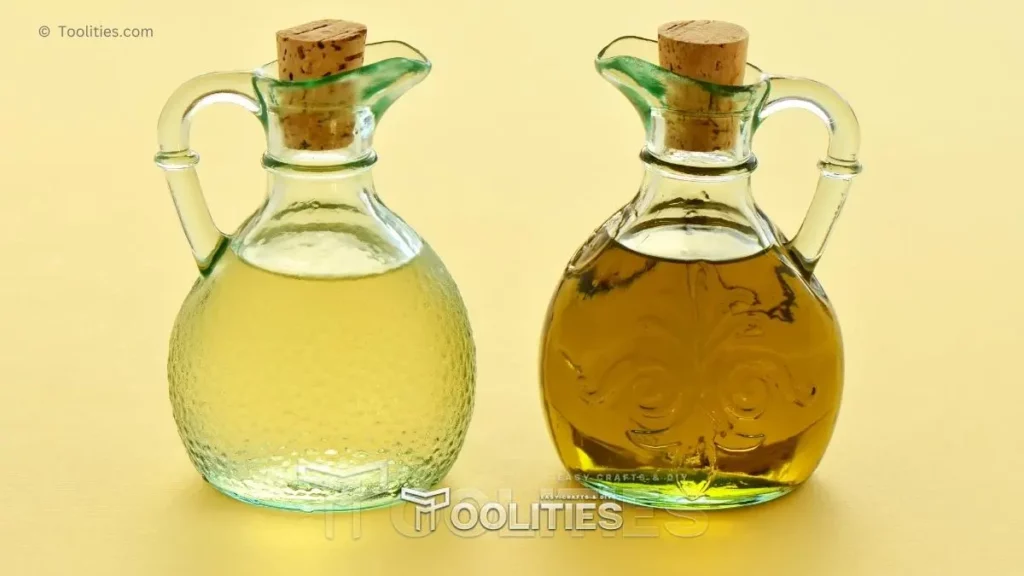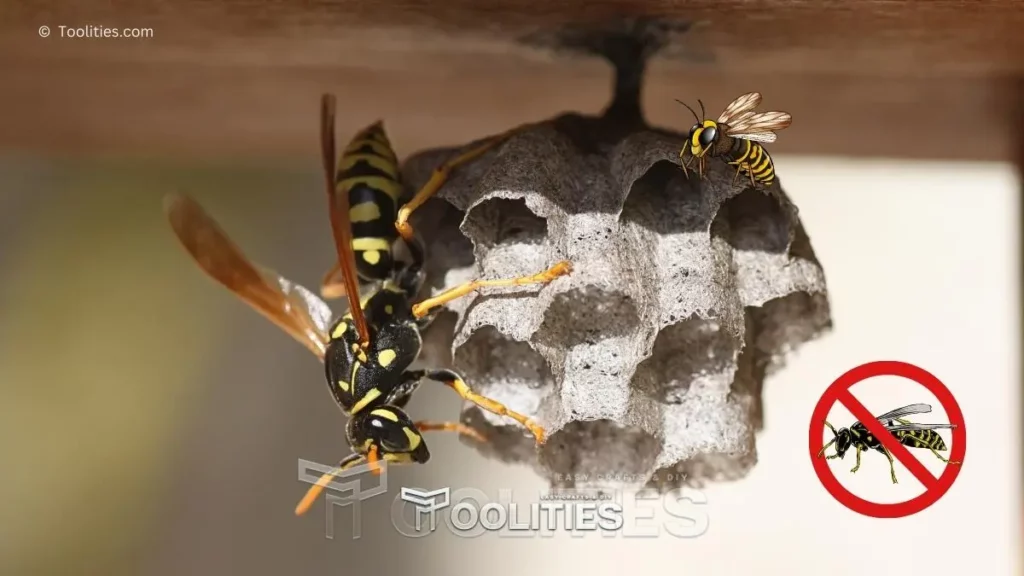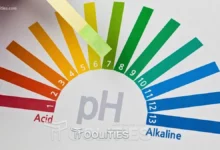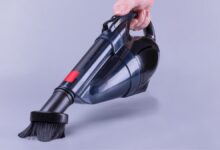How to Get Rid of Wasps with Vinegar Instantly
Save your summer BBQ from uninvited guests with this vinegar trick!
Wasps can quickly turn your outdoor gatherings into a nightmare. Their painful stings and relentless presence can make even the most beautiful summer day feel unbearable. But fear not, for there's a natural remedy that can help you regain control over your outdoor spaces: vinegar. In this guide, we'll explore how to get rid of wasps with vinegar, an eco-friendly and effective solution.
Get rid of wasps instantly with vinegar! Discover the secret weapon to keeping your outdoor spaces wasp-free. Start reclaiming your peace today!
Table of Contents
The Science Behind It
The Acidity Factor
Vinegar, with its distinct pungent smell and acidic nature, is a potent wasp deterrent. The key lies in its pH level, which is typically between 2 and 3. This acidity makes it an uncomfortable environment for wasps. When they come into contact with vinegar, it disrupts their comfort zone and sends them searching for friendlier territories.
Disrupting Communication
Wasps are highly social insects that rely on pheromones to communicate. Vinegar has the power to interfere with this communication network. When wasps encounter the scent of vinegar, it can mask their pheromones, making it difficult for them to signal danger or food sources to one another.
Choosing the Right Vinegar
To effectively get rid of wasps, you need to choose the right type of vinegar.
White Vinegar vs. Apple Cider Vinegar

Acetic Acid Content
White vinegar, also known as distilled vinegar, typically contains a higher percentage of acetic acid (around 5-7%). This higher acidity level makes it a more potent wasp repellent compared to other vinegar types.
Scent and Attractants
Apple cider vinegar, on the other hand, has a milder aroma compared to white vinegar. While it can still deter wasps due to its acidity, it might not be as effective at masking attractants that could draw wasps in the first place.
Safety Precautions
Before you embark on your mission to eliminate wasps with vinegar, it's crucial to take safety precautions.
Protective Gear
Proper clothing and accessories are essential when dealing with wasps. Wear thick clothing that covers your entire body, including gloves and a veil or hat with a net to protect your face.
Timing is Crucial
Avoid confronting wasps during their peak activity hours, which are typically during daylight hours. Dusk or early morning are often the best times to address a wasp problem when they are less active and less aggressive.
Homemade Wasp Repellent Spray
Creating a homemade wasp repellent spray is an economical and effective way to deal with these stinging insects.
Recipe for a Vinegar-Based Spray
Here's a simple recipe for a vinegar-based spray:
Ingredients:
- 1 cup of white vinegar
- 1 cup of water
- 1 tablespoon of dish soap
- A spray bottle
Measurements:
- Mix equal parts white vinegar and water in the spray bottle.
- Add one tablespoon of dish soap.
- Gently shake the bottle to combine the ingredients.
Mixing and Storing Vinegar Recipe
Ensure that the ingredients are thoroughly mixed. Store the spray in a cool, dark place away from direct sunlight. This homemade solution can remain effective for several weeks, making it a cost-efficient choice.
In the next sections, we will explore the various application techniques and alternative vinegar-based methods to deal with wasps effectively.
How to Get Rid of Wasps with Vinegar Instantly
Now that you have your homemade vinegar-based spray ready, it's time to learn how to apply it effectively to tackle your wasp problem.
Targeted Spraying
- Locating Nests and Entry Points: Begin by identifying wasp nests and potential entry points around your property. Common nesting sites include eaves, tree branches, and wall cavities. Keep a safe distance while scouting for nests to avoid provoking the wasps.
- Direct Spray: Once you've located nests or entry points, approach them cautiously and spray the vinegar solution directly onto the area. Make sure to saturate the nest thoroughly. The acidity of the vinegar will deter the wasps and eventually lead them to abandon their nest.
Using a Sprayer
- Achieving Even Coverage: To deal with wasps in open areas or for preventive measures, use a garden sprayer or a spray bottle. Adjust the nozzle to create a fine mist and ensure even coverage. Spray vinegar around outdoor seating areas, garbage cans, and places where you've spotted wasp activity.
- Reapply as Needed: Vinegar's effectiveness diminishes over time, especially when exposed to the elements. Reapply the vinegar spray every few days or after rain to maintain its deterrent effect.
Avoiding Collateral Damage
- Protecting Plants and Other Non-Target Areas: Be mindful of nearby plants and flowers, as vinegar can harm them. Shield these areas or cover them before spraying. After applying the vinegar, rinse plants with water to mitigate any potential damage.
Alternative Vinegar-Based Methods
In addition to vinegar sprays, there are alternative methods to get rid of wasps using vinegar.
Vinegar-Soaked Cotton Balls
- Placement and Effectiveness: Soak cotton balls in vinegar and strategically place them in areas where wasps are a nuisance. Wasps dislike the strong scent of vinegar, so these cotton balls can act as a natural repellent. Replace them periodically to maintain their effectiveness.
Vinegar Traps
- Creating an Enticing Trap: Craft a simple vinegar trap by placing a container with a mixture of vinegar and a few drops of dish soap near wasp-prone areas. The soap breaks the surface tension of the vinegar, causing wasps to drown when they land in it.
- Emptying and Resetting Traps: Check the traps regularly and empty them as needed. Refill the containers with fresh vinegar to ensure continuous wasp capture.
Natural Wasp Deterrent
Preventing wasps from returning is just as important as getting rid of them. Consider these natural deterrent methods.

Planting Herbs and Flowers
- Wasp-Repelling Plants: Some plants, like mint, basil, and marigolds, naturally repel wasps due to their strong scents. Plant them around your outdoor spaces to deter wasps from coming near.
- Companion Planting: Strategically pair plants that repel wasps with those that attract beneficial insects like ladybugs or pollinators. This can help maintain a balanced ecosystem in your garden.
Wasp-Repelling Essential Oils
- Application Methods: Essential oils such as peppermint, clove, and lemongrass are known for their wasp-repelling properties. Dilute these oils with water and use a spray bottle to apply them to areas prone to wasp activity. The aroma will discourage wasps from approaching.
Preventing Future Infestations
- Regular Maintenance: Keep your outdoor spaces clean and free of food debris, sugary spills, and open trash containers. Wasps are attracted to these food sources, so regular cleaning can prevent infestations.
- Landscaping Considerations: Remove potential nesting sites, such as old logs or debris piles, from your property. Trim overhanging branches to eliminate potential nesting spots near your home.
- Educating Others: Spread awareness about wasp prevention and control among your family, friends, and neighbors. Encourage responsible practices to reduce the overall wasp population in your area.
When to Seek Professional Help
Despite your best efforts, there may be situations where professional intervention is necessary.
Identifying Severe Infestations
- Signs of a Major Wasp Problem: If you notice an exceptionally large number of wasps, an unusually large nest, or if you suspect that the wasp species on your property is aggressive (e.g., yellow jackets), it's time to seek professional assistance.
- Calling in Experts: Pest control specialists have the knowledge, equipment, and protective gear to handle severe wasp infestations safely. Contact them when the situation becomes unmanageable.
- Safety First: Remember that wasps can be aggressive when they feel threatened. Prioritize your safety and that of others when dealing with severe infestations. Professional exterminators can safely and effectively eliminate the threat.
Conclusion
With the power of vinegar and the knowledge of effective application techniques, you can reclaim your outdoor spaces from unwanted wasp intruders. By following these steps, you'll not only get rid of wasps but also prevent them from returning, allowing you to enjoy your outdoor activities in peace once again.
In conclusion, mastering the art of getting rid of wasps with vinegar can make your outdoor spaces much more enjoyable and safe. This natural and cost-effective method not only helps you eliminate existing wasp problems but also acts as a preventive measure to keep these stinging insects at bay. Let's recap the key takeaways from this comprehensive guide:
Key Takeaways
- Understanding the Science: Vinegar's acidity disrupts the comfort zone of wasps and interferes with their communication through pheromones, making it an effective repellent.
- Choosing the Right Vinegar: White vinegar, with its higher acetic acid content, is generally more effective at repelling wasps than apple cider vinegar.
- Safety Precautions: Always prioritize safety by wearing protective clothing and choosing the right time to address the wasp issue.
- Homemade Wasp Repellent Spray: Creating your vinegar-based spray is easy and economical. Ensure even coverage and reapply as needed.
- Alternative Vinegar-Based Methods: Explore options like vinegar-soaked cotton balls and vinegar traps for additional wasp control.
- Natural Wasp Deterrent: Planting wasp-repelling herbs and flowers, as well as using essential oils, can help deter wasps from your outdoor spaces.
- Preventing Future Infestations: Regular maintenance and proper landscaping can reduce the attractiveness of your property to wasps.
- When to Seek Professional Help: Don't hesitate to call in pest control specialists if you encounter a severe wasp infestation that poses a safety risk.
By following these steps and strategies, you can take control of your wasp situation and enjoy a wasp-free environment. Remember that persistence and a proactive approach are key to long-term success in keeping wasps away from your outdoor gatherings and activities.
With vinegar as your ally, you can reclaim your outdoor spaces and create a safer, more pleasant environment for yourself, your family, and your friends. Say goodbye to those pesky wasps and hello to worry-free outdoor enjoyment.






